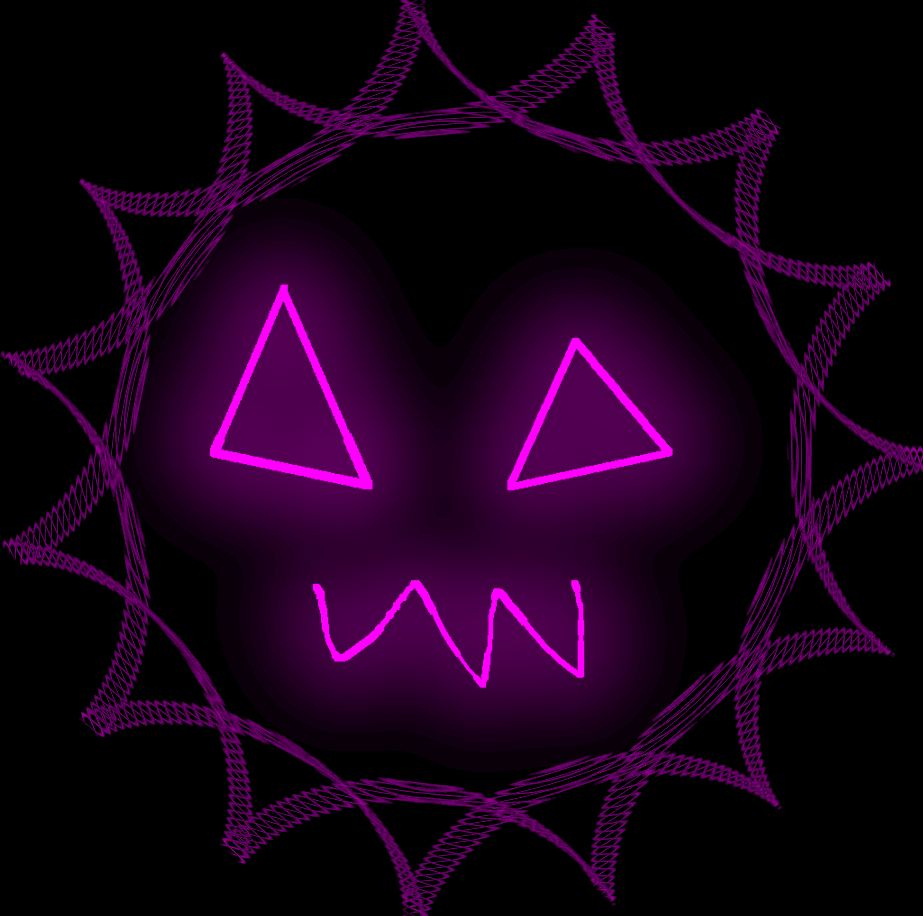I just found out about this debate and it’s patently absurd. The ISO 80000-2 standard defines ℕ as including 0 and it’s foundational in basically all of mathematics and computer science. Excluding 0 is a fringe position and shouldn’t be taken seriously.
I could be completely wrong, but I doubt any of my (US) professors would reference an ISO definition, and may not even know it exists. Mathematicians in my experience are far less concerned about the terminology or symbols used to describe something as long as they’re clearly defined. In fact, they’ll probably make up their own symbology just because it’s slightly more convenient for their proof.
My experience (bachelor’s in math and physics, but I went into physics) is that if you want to be clear about including zero or not you add a subscript or superscript to specify. For non-negative integers you add a subscript zero (ℕ_0). For strictly positive natural numbers you can either do ℕ_1 or ℕ^+.
I hate those guys. I had that one prof at uni and he reinvented every possible symbol and everything was so different. It was a pita to learn from external material.
they’ll probably make up their own symbology just because it’s slightly more convenient for their proof
I feel so thoroughly called out RN. 😂
From what i understand, you can pay iso to standardise anything. So it’s only useful for interoperability.
Can I pay them to make my dick length the ISO standard?
I feel they have an image to maintain, but i also feel they would sell out for enough money. So… tell me if you make it.
Yeah, interoperability. Like every software implementation of natural numbers that include 0.
How programmers utilize something doesn’t mean it’s the mathematical standard, idk why ISO would be a reference for this at all
Because ISO is the International Organisation for Standardization
Yes, but it’s not for mathematicians. It’s for the applied fields.
Yeah dont do that.
Ehh, among American academic mathematicians, including 0 is the fringe position. It’s not a “debate,” it’s just a different convention. There are numerous ISO standards which would be highly unusual in American academia.
FWIW I was taught that the inclusion of 0 is a French tradition.
The US is one of 3 countries on the planet that still stubbornly primarily uses imperial units. “The US doesn’t do it that way” isn’t a great argument for not adopting a standard.
I’m an American mathematician, and I’ve never experienced a situation where 0 being an element of the Naturals was called out. It’s less ubiquitous than I’d like it to be, but at worst they’re considered equally viable conventions of notation or else undecided.
I’ve always used N to indicate the naturals including 0, and that’s what was taught to me in my foundations class.
Of course they’re considered equally viable conventions, it’s just that one is prevalent among Americans and the other isn’t.
I think you’re using a fringe definition of the word “fringe”.
I’m not.
I have yet to meet a single logician, american or otherwise, who would use the definition without 0.
That said, it seems to depend on the field. I think I’ve had this discussion with a friend working in analysis.
I did say mathematician, not logician.
Logicians are mathematicians. Well, most of them are.
But not all mathematicians are logicians.
Logically.
This isn’t strictly true. I went to school for math in America, and I don’t think I’ve ever encountered a zero-exclusive definition of the natural numbers.
It is true.
Well, you can naturally have zero of something. In fact, you have zero of most things right now.
How do you know so much about my life?

But there are an infinite number of things that you don’t have any of, so if you count them all together the number is actually not zero (because zero times infinity is undefined).
There’s a limit to the number of things unless you’re counting spatial positioning as a characteristic of things and there is not a limit to that.
there’s no limit to the things you don’t have, because that includes all of the things that don’t exist.
Only if you’re able to define things that don’t exist by infinities.
I am.
How do I have anything if I have nothing of something?
I have seen arguments for zero being countable because of some transitive property with not counting still being an option in an arbitrary set of numbers you have the ability to count to intuitively.
the standard (set theoretic) construction of the natural numbers starts with 0 (the empty set) and then builds up the other numbers from there. so to me it seems “natural” to include it in the set of natural numbers.
On top of that, I don’t think it’s particularly useful to have 2 different easy shorthands for the positive integers, when it means that referring to the union of the positive integers and the singleton of 0 becomes cumbersome as a result.
Counterpoint: if you say you have a number of things, you have at least two things, so maybe 1 is not a number either. (I’m going to run away and hide now)
“I have a number of things and that number is 1”
I have a number of friends and that number is 0
I have a number of money and number is -3567
I’m willing to die on this hill with you because I find it hilarious
Another Roof has a good video on this. At some points One was considered “just” the unit, and a Number was some multiple of units.
I think if you ask any mathematician (or any academic that uses math professionally, for that matter), 0 is a natural number.
There is nothing natural about not having an additive identity in your semiring.
deleted by creator
How are those the same? You need to define “religion” and “sport” rigorously first.
Since you haven’t provided one, I’ll just use the first sentence on the wiki page:
Religion is a range of social-cultural systems, including designated behaviors and practices, morals, beliefs, worldviews, texts, sanctified places, prophecies, ethics, or organizations, that generally relate humanity to supernatural, transcendental, and spiritual elements.
“Atheism,” without being more specific, is simply the absence of a belief in a deity. It does not prescribe any required behaviors, practices, morals, worldviews, texts, sanctity of places or people, ethics, or organizations. The only tenuous angle is “belief,” but atheism doesn’t require a positive belief in no gods, simply the absence of a belief in any deities. Even if you are talking about strong atheism (“I believe there are no deities”), that belief is by definition not relating humanity to any supernatural, transcendental, or spiritual element. It is no more religious a belief than “avocado tastes bad.” If atheism broadly counts as a religion, then your definition of “religion” may as well be “an opinion about anything” and it loses all meaning.
If you want to talk about specific organizations such as The Satanic Temple, then those organizations do prescribe ethics, morals, worldviews, behaviors, and have “sanctified” places. Even though they still are specifically not supernatural, enough other boxes are checked that I would agree TST is a religion.
I have no idea what you’re on about with not golfing being a sport.
To the golf thing:
“Is not playing a sport also a sport?”
The basic premise of the poster’s comment was:
“Is the absence of a thing, a thing in and of itself?”
That was not the premise of the poster’s comment.
0 isn’t nothing, and “a thing” is a much broader category than “natural numbers”.Half an apple is also a thing.
deleted by creator
No to both, though atheism can be a theological philosophy.
I’d argue that atheism is a feature of a belief system and that the system may or may not be a religion. There are religions that don’t feature a belief in any gods. Similarly, your personal belief system may not be a full blown religion, even if you did happen to be theistic.
In school i was taught that ℕ contained 0 and ℕ* was ℕ without 0
I was taught ℕ did not contain 0 and that ℕ₀ is ℕ with 0.
ℕ₀* is ℕ with 0 without 0
Aren’t you guys taught about a tging called whole numbers??
It is a natural number. Is there an argument for it not being so?
Well I’m convinced. That was a surprisingly well reasoned video.
Thanks for linking this video! It lays out all of the facts nicely, so you can come to your own decision
There can’t really be an argument either way. It’s just a matter of convention. “Natural” is just a name, it’s not meant to imply that 1 is somehow more fundamental than -1, so arguing that 0 is “natural” is beside the point
I’d learned somewhere along the line that Natural numbers (that is, the set ℕ) are all the positive integers and zero. Without zero, I was told this were the Whole numbers. I see on wikipedia (as I was digging up that Unicode symbol) that this is contested now. Seems very silly.
I think whole numbers don’t really exist outside of US high schools. Never learnt about them or seen them in a book/paper at least.
Actually “whole numbers” (at least if translated literally into German) exist outside America! However, they most absolutely (aka are defined to) contain 0. Because in Germany “whole numbers” are all negative, positive and neutral (aka 0) numbers with only an integer part (aka -N u {0} u N [no that extra 0 is not because N doesn’t contain it but just because this definition works regardless of wether you yourself count it as part of N or not]).
I wouldn’t be surprised. I also went to school in MS and LA so being taught math poorly is the least of my educational issues. At least the Natural numbers (probably) never enslaved anyone and then claimed it was really about heritage and tradition.
Natural numbers are used commonly in mathematics across the world. Sequences are fundamental to the field of analysis, and a sequence is a function whose domain is the natural numbers.
You also need to index sets and those indices are usually natural numbers. Whether you index starting at 0 or 1 is pretty inconsistent, and you end up needing to specify whether or not you include 0 when you talk about the natural numbers.
Edit: I misread and didn’t see you were talking about whole numbers. I’m going to leave the comment anyway because it’s still kind of relevant.
But is zero a positive number?
Weird, I learned the exact reverse. The recommended mnemonic was that the whole numbers included zero because zero has a hole in it.
Definition of natural numbers is the same as non-negative numbers, so of course 0 is a natural number.
In some countries, zero is neither positive nor negative. But in others, it is both positive and negative. So saying the set of natural number is the same as non-negative [integers] doesn’t really help. (Also, obviously not everyone would even agree that with that definition regardless of whether zero is negative.)
But -0 is also 0, so it can’t be natural number.
0 is not a natural number. 0 is a whole number.
The set of whole numbers is the union of the set of natural numbers and 0.
Does the set of whole numbers not include negatives now? I swear it used to do
That might be integers, but I have no idea.
deleted by creator
An English dictionary is not really going to tell you what mathematicians are doing. Like, its goal is to describe what the word “integer” means (in various contexts), it won’t tell you what the “integer series” is.
https://math.stackexchange.com/questions/138633/what-are-the-whole-numbers
The gist I see is that it’s kind of ambiguous whether the whole number series includes negatives or not, and in higher math you won’t see the term without a strict definition. It’s much more likely you’d see “non-negative integers” or the like.
deleted by creator
Whoa, whoa, I’m not making this out to be like an imperialism thing. I’m not interested in what people ought to do.
The link I gave, a comment in there gives examples of papers where the term is being used to mean different things. So, this ambiguity is either something you just have to contend with (people using the term wrong), or you just don’t read from those people. It’s fine. Nobody is coming for you, I promise.
If I were in your class and you said “the whole numbers” but meant the negatives too, that’d probably give me pause (dumb American), but I have such herculean powers of intuition that I probably wouldn’t even ask you a question about it.
deleted by creator
I would say that whole numbers and integers are different names for the same thing.
In german the integers are literally called ganze Zahlen meaning whole numbers.
Whole numbers are integers, integer literally means whole.
As a programmer, I’m ashamed to admit that the correct answer is no. If zero was natural we wouldn’t have needed 10s of thousands of years to invent it.
Did we need to invent it, or did it just take that long to discover it? I mean “nothing” has always been around and there’s a lot we didn’t discover till much more recently that already existed.
IMO we invented it, because numbers don’t real. But that’s a deeper philosophical question.
Does “nothing” “exist” independent of caring what there is nothing of or in what span of time and space there is nothing of the thing?
There’s always been “something” somewhere. Well, at least as far back as we can see.
As a programmer, I’d ask you to link your selected version of definition of natural number along with your request because I can’t give a fuck to guess
I truly have no idea what you’re saying.
I think you’re considering whether zero is somehow “naturally-occurring”, while others may be considering the concept of a natural number, which is a nonnegative integer.
I think he’s just asking for a properly documented Pull Request in order to process your thoughts.
I have been taught and everyone around me accepts that Natural numbers start from 1 and Whole numbers start from 0
Oh no, are we calling non-negative integers “whole numbers” now? There are proposals to change bad naming in mathematics, but I hope this is not one of them.
On the other hand, changing integer to whole number makes perfect sense.
I like how whenever there’s a pedantic viral math “problem” half of the replies are just worshiping one answer blindly because that’s how their school happened to teach it.
Negative Zero stole my heart















